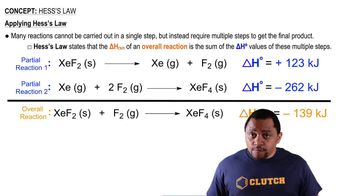Textbook Question
Methyl tert-butyl ether (MTBE), C5H12O, a gasoline additive used to boost octane ratings, has ΔH°f = -313.6 kJ/mol. Write a balanced equaiton for its combustion reaciton, and calcualte its standard heat of combustion in kilojoules
1142
views




